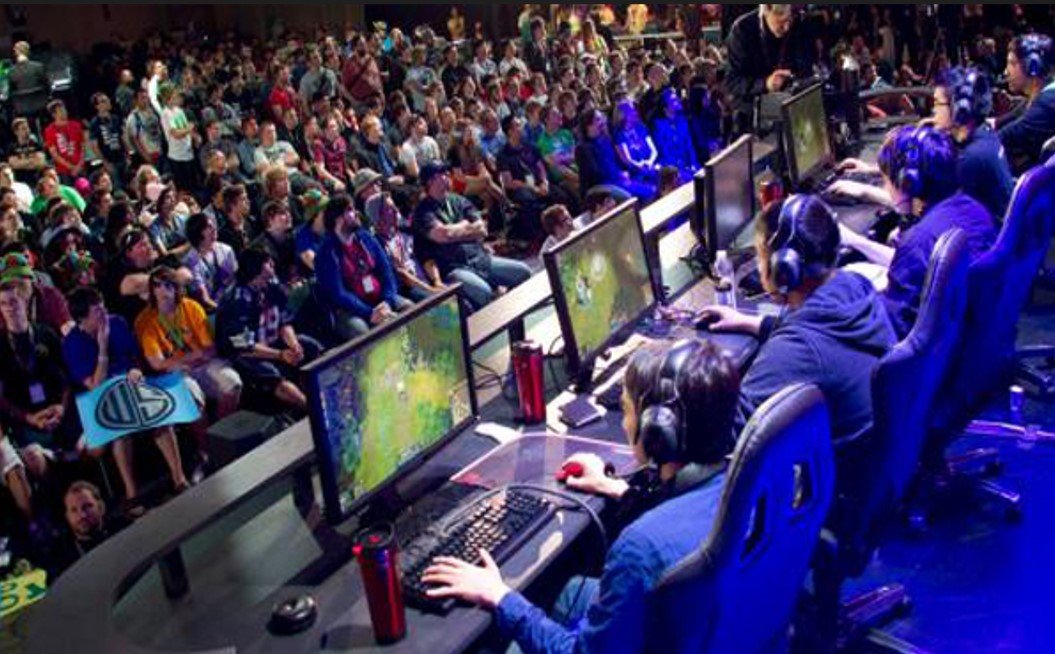
Online slot gacor has become a dominant form of entertainment and interaction in the digital age. With millions of players engaged worldwide, the online gaming industry is continually evolving, offering new experiences, technologies, and challenges. This article explores the current landscape of online gaming, examining emerging trends, potential challenges, and future prospects that shape the industry.
1. The Rise of Cross-Platform Gaming
One of the most significant trends in online gaming is the rise of cross-platform play. Players can now engage with others across different gaming consoles, PCs, and mobile devices. Titles like Fortnite and Call of Duty: Warzone have embraced this approach, allowing friends to connect regardless of the platform. This inclusivity enhances player communities and broadens the gaming experience.
2. Enhanced Graphics and Immersive Experiences
As technology advances, the graphics and overall quality of online games have improved significantly. Game developers are leveraging powerful hardware and software to create stunning visuals and realistic environments. The push for immersive experiences through virtual reality (VR) and augmented reality (AR) is reshaping gameplay, providing players with more engaging and lifelike interactions.
3. The Impact of Cloud Gaming
Cloud gaming has emerged as a game-changer, allowing players to stream games directly from the cloud without the need for expensive hardware. Services like Google Stadia and NVIDIA GeForce Now enable gamers to access high-quality games on various devices, making gaming more accessible to a broader audience. This shift could redefine how games are distributed and played in the future.
4. The Role of Community and Social Interaction
Online gaming fosters strong communities where players can connect and share experiences. Games often feature social hubs, forums, and in-game chat functions that encourage interaction. This sense of belonging is crucial for many players, as it provides opportunities for collaboration and friendship. The rise of community-driven events and tournaments further enhances social engagement within games.
5. Monetization Strategies and Game Development
The monetization landscape in online gaming is shifting, with developers exploring various strategies to generate revenue. Microtransactions, battle passes, and subscription models have become common, allowing players to access additional content while supporting developers. However, the ethical implications of monetization practices are under scrutiny, as players demand more transparency and fairness in how they spend their money.
6. The Emergence of Indie Games
Indie games have gained popularity in recent years, thanks to platforms like Steam and itch.io that provide exposure for smaller developers. These games often prioritize creativity and unique storytelling, attracting players seeking fresh experiences outside mainstream titles. The success of indie games demonstrates that innovation can thrive in a competitive industry.
7. Diversity and Representation in Gaming
The gaming industry is increasingly focusing on diversity and representation, both in character design and storylines. Developers are making conscious efforts to create inclusive games that reflect a wide range of cultures, identities, and experiences. This shift not only resonates with a broader audience but also promotes a sense of acceptance and belonging within the gaming community.
8. Addressing Mental Health and Gaming Addiction
While online gaming can offer numerous benefits, it also raises concerns about mental health and gaming addiction. The industry is becoming more aware of these issues, with developers implementing features that encourage responsible gaming. Initiatives to promote breaks and healthy gaming habits aim to ensure that players can enjoy gaming without detrimental effects on their well-being.
9. Esports Growth and Professionalization
The esports industry is booming, with professional teams, sponsorships, and large-scale tournaments attracting global attention. Titles like League of Legends and Valorant have established themselves as competitive staples, drawing massive audiences both online and in-person. The professionalization of esports has opened new career opportunities for players, commentators, and event organizers, creating a vibrant ecosystem around competitive gaming.
10. Security and Data Privacy Challenges
As online gaming grows, so do concerns about security and data privacy. Players must share personal information to access online services, making them vulnerable to cyber threats. Developers are tasked with implementing robust security measures to protect player data and prevent hacking incidents. Ongoing education about safe gaming practices is essential for players to protect themselves in the digital landscape.
11. The Influence of AI in Gaming
Artificial intelligence is revolutionizing online gaming, enhancing player experiences and game mechanics. AI algorithms can create dynamic, adaptive environments that respond to player behavior, making games more engaging and challenging. Additionally, AI is being used for game moderation, ensuring fair play and maintaining a positive gaming environment.
12. The Intersection of Gaming and Cryptocurrency
The emergence of cryptocurrency and blockchain technology is beginning to influence the gaming industry. Many games are exploring the integration of digital currencies and non-fungible tokens (NFTs), allowing players to trade in-game assets securely. This shift could create new economic opportunities within games, although it also raises questions about ownership and value in virtual economies.
13. The Role of Streaming and Content Creation
Streaming platforms have reshaped how gamers engage with content, enabling players to broadcast their gameplay and connect with audiences. Content creators can build communities around their channels, offering insights, tips, and entertainment. The symbiotic relationship between gaming and streaming continues to flourish, influencing game popularity and trends.
14. Educational Applications of Gaming
Online slot is finding applications in education, with serious games designed to teach specific skills or concepts. These educational games provide interactive experiences that enhance learning outcomes, making education more engaging. The potential for gamification in education highlights how gaming can transcend entertainment and contribute to skill development.
15. Future Prospects in Online Gaming
As technology continues to advance, the future of online gaming looks promising. The integration of VR, AR, and AI will likely lead to even more immersive experiences. The industry will need to navigate challenges around ethics, security, and mental health while striving to create inclusive and engaging environments for players. The ongoing evolution of online gaming promises to reshape entertainment and social interaction in unprecedented ways.
Conclusion
Online gaming is more than just a form of entertainment; it is a dynamic ecosystem that influences culture, technology, and social interaction. As the industry continues to grow and evolve, it presents both exciting opportunities and challenges. The future of online gaming will depend on how developers, players, and communities navigate this ever-changing landscape, ensuring that gaming remains a source of enjoyment, creativity, and connection for all.
